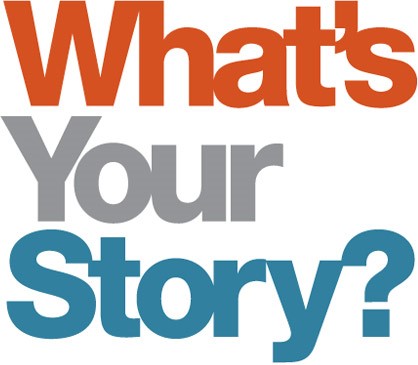Seven Types Of Stories Every Leader Should Tell

Good leaders tell stories. It’s been well established through a plethora of research that stories shape cultures, enhance information retention, build connection, and set direction. As I wrote about previously, there are simple techniques to use to tell compelling stories. We overcomplicate what is a relatively natural act of communication. The harder part is often remembering, and being diligent, to use them in a work context.
All professionals can benefit from building competencies around storytelling, but for leaders, it’s a must.
As Douglas Ready wrote in the MIT Sloan Management Review, research on storytelling in executive development found storytelling outperformed many other development initiatives in creating leadership skills. When leaders learn storytelling it “builds strategic competence and strengthens organizational character.” This is not about learning how to give a quick pep talk, but embedding storytelling into the organization as cultural and leadership norms.
Considering the amount of content workers have to sift through to determine what’s important, stories create an interest factor that no spreadsheet can rival. Presentation guru Nancy Duarte explains this well in her video about the power of storytelling to engage.
In my work coaching executives, clients frequently voice uncertainty about when to tell a story, what kind, and in what situation. To that end, I’ve developed a list of common leadership stories to use as a guide. While there’s overlap between these at times, in general, leaders should have stories in each of these buckets to draw from when needed.
Challenge stories are used when we need a team to get over the hump or push themselves to a new level.
Examples: stories of when you tried and failed before; how a team overcame odds; what your competitor has accomplished.
Relating stories help leaders to be truly known by others, and to connect on a human level.
Examples: personal stories about your background; a time when you faced a similar issue; challenges you had when you had the job of the person in front of you.
Metaphoric stories open perspectives as they take us out of the situation we’re in and propose an alternate – and neutral – set of circumstances from which to learn.
Examples: a story of something simple (i.e. a rollercoaster, hurricane) to help people see the here and now; a time when you tackled a physical challenge to explain the role of training and setbacks; anecdotes about personal life (i.e. dating, family issues) that hold meaning for work life.
Vision stories enhance our ability to imagine, and create vivid images of what the future may hold. They allow us to suspend judgment and move from what can’t be to what could be.
Examples: stories of other teams that push our belief in what’s possible; examples of others who have defied conventional wisdom; provocative role models who dared to play big.
Potential stories may be used to show others what’s possible for them, and to unlock what they see for themselves. They’re similar to vision stories in that they stoke imagination, but are usually more directed at a particular outcome.
Examples: an example of another person in the same role who excelled; a time when you beat the odds to achieve what they’re trying to accomplish; a “just imagine” story about what you see for another in a few months or years.
Cautionary tales are used to keep others from steering off the tracks and provide a firm example of what not to do.
Example: a company or team who misdirected and failed; a time when you pushed too hard and lost; a reminder from the team’s past you don’t want to repeat.
Humorous stories simply lighten the mood. They ease tension and allow others to reframe and refocus.
Example: a time when you messed up and what you learned; a story from a shared history that the group can now laugh about; a figure from history or pop culture that can illustrate a greater meaning; a sincere personal story that just makes people laugh.
What types of stories do you tell? Comment here or @kristihedges.
Kristi Hedges is a leadership coach, speaker and author of The Power of Presence: Unlock Your Potential to Influence and Engage Others. She blogs atkristihedges.com.
Other Recent Posts
Why 2021 is Your Reset Year
March 8, 2021
Remember What You Loved About Your Job? It’s Still There If You Look.
November 30, 2020
Leading During COVID: What To Say When You Don’t Know What To Say
July 21, 2020
Leading When the Plan is No Real Plan at All
May 26, 2020
How to Lead with Positivity When The World Is In Chaos
February 21, 2020
When Work Is Soul Crushing
January 30, 2020
If You Want to Look Smart, Ask These Questions
November 26, 2019
Make Professional Development Less Work and More Fun
October 22, 2019

